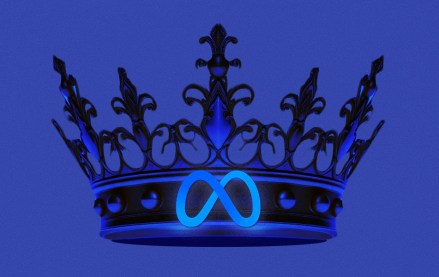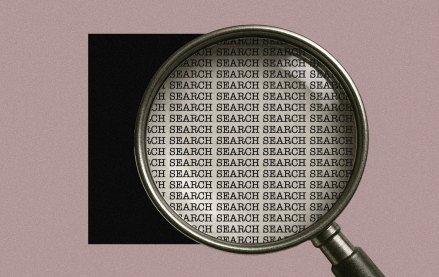Secure your place at the Digiday Publishing Summit in Vail, March 23-25
‘The dollar amount isn’t worth the mental toll’: Confessions of a media buyer on the pressure to keep performance up amid the pandemic

This article is part of our Confessions series, in which we trade anonymity for candor to get an unvarnished look at the people, processes and problems inside the industry. More from the series →
For media buyers working with direct-to-consumer brands, the pressure to continue hitting sales goals despite the economic impact of the pandemic is taking a toll. It can be difficult to manage the expectations of a brand manager with rising costs amid a recession. In the latest edition of our Confessions series, in which we trade anonymity for candor, we hear from a media buyer for an independent agency about how the pressure to keep performance up is affecting his mental health and what he wish brand marketers understood.
This conversation has been lightly edited and condensed for clarity.
How is your mental health?
It hasn’t been great, if I’m being honest. For whatever reason, the end of July and early August has been extremely tough. There are macro economic forces at work but there’s a lot of pressure to keep performance up while the economy is basically getting worse in some ways. There’s a lot of pressure to keep hitting these very intense sales and performance goals at a time when CPMs are rising, cost-per-acquisition is rising, etc. and a lot of that pressure falls onto media buyers, at least in the DTC world. People can mentally acknowledge that there could be other issues [impacting performance], whether with the landing page or conversion rate optimization or copywriting [but] the buck seems to stop with media buying for whatever reason.
Why do you think that is?
Some of it is self-induced. In the media buying world, people are always tweeting out these ridiculous stories of like, “I made this brand a million dollars with a seven dollar ad spend. Here’s the case study.” That just ratchets up the pressure and creates this environment where there are unrealistic expectations for everybody all the time.
Do those expectations affect your mental health?
I have a diagnosed anxiety disorder. I’ve struggled with it on and off, but lately it’s been rough as clients are trying to hit aggressive sales goals and they’re leaning on you harder because they don’t have any other levers to pull so it creates a high pressure environment. The last three weeks I basically haven’t stopped working other than taking an hour for dinner but then I’ll get back to it to squeeze every little bit of performance I can.
That sounds unsustainable.
It is. It used to be better with the work/life balance, but now I get Slack messages [from clients] 24/7, literally one in the morning on Sunday people are messaging me. Boundaries have gone away and I don’t know if it’s the work from home nature of the pandemic, but it has set in this malaise where one day just fades into the next and the work/life balance has completely gone out the window for me — and for others I know too — due to this pressure to perform. People freak out if there’s a single bad day whereas in the past there was a little more leniency.
Why do you think this pressure falls to the media buyer?
There are a few reasons. In the DTC world especially it seems like for whatever reason the media buyers are the ones running the ship and making a lot of decisions on strategy. I also think that media buying has a very aggressive, toxic culture tied to it. There are a lot of gurus who are coming at it from a media buying perspective pedaling secret methods that can make you absurd returns and things like that. There’s also just a lot of inconsistency day-to-day with Facebook in particular — but then someone will post a screenshot of a great return.
When you’re surrounded by all of it there’s this ambient pressure to meet these unrealistic expectations and there are so many people trying to work with DTC brands that you’re thinking if you say no or push back or don’t meet the absurd expectation then there are 20 people behind you ready to go. So the unrealistic expectations boil over and destroy work/life balance which takes a toll when you have a mental health issue. When you can’t step away ever or let off the steam in a healthy way it can be very difficult.
Have you tried to talk to clients about boundaries to get a sense of normalcy back?
I’ve talked to some of them. Half of them respected it and said that I shouldn’t feel the need to respond and things like that. The other half I’ve unfortunately had to let go. I’m fortunate I have the kind of job I do and my team is able to continue to have steady work in all of this but there just comes a point where the dollar amount isn’t worth the mental toll. For people who dig in their heels on unhealthy behaviors you have to let them go.
What do you wish they understood?
We’re human beings on the other end. Also, you should trust the people you work with — pushing harder on someone will only push them to make panicked decisions rather than what’s better in the long run.
Other than letting some clients go, are you doing anything else to try to help your mental health?
I’ve been meditating and journaling a lot which helps. I’m also trying to focus on the present rather than focus on outcomes — or when the pandemic will be over.
More in Marketing

As it ramps up push to fund AI bets, Meta makes a new play for agencies
Even in the age of Advantage+, Meta needs agencies.

Zero-click reality is rewriting the rules of search for brands
Search performance concerns have reached brand boardrooms. Both organic and paid search practitioners are scrambling to find effective responses to the questions posed by AI developments.

Walmart Connect’s full-funnel ambitions come into focus, with Amazon in its sights
Walmart Connect is scaling quickly, with AI investments and the Vizio acquisition shaping its push to rival Amazon’s ad business.





